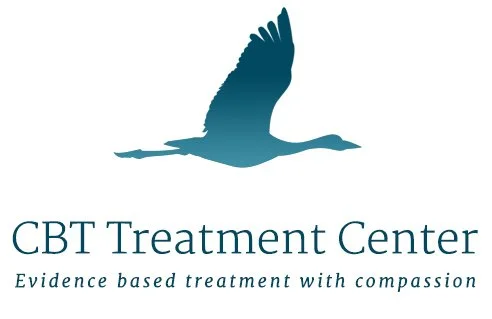
Insomnia Therapy
Has Insomnia Become An Ongoing Problem?
Is chronic insomnia impacting your quality of life?
Do you sometimes go for days or weeks without getting a good night’s sleep?
Does underlying anxiety exacerbate your symptoms?
Insomnia is a vexing problem that can feel like it’s impossible to solve. Whether you struggle with getting to sleep, staying asleep, or waking up too early, you may experience fatigue or fogginess during the day that makes you exhausted, unfocused, and prone to moodiness. Once you start tossing and turning all night and then don’t have the energy to do the things you planned the following day, It doesn’t take long before your quality of life suffers.
Anxiety Often Underlies Sleepless Nights
When a stretch of insomnia takes hold, a vicious cycle often emerges, punctuated by anxiety and sleeplessness. Initially, anxiety may keep you awake the first night or two, but soon, your anxiety about not sleeping can perpetuate insomnia, keeping you stuck in a chronic loop. The more you try to quiet your mind and fall asleep, the more worried you become and the harder it is to sleep.
Perhaps you’ve tried sleeping pills before but don’t like the side effects or realize that medication isn’t a long-term answer. But without an alternate solution available, you may feel hopeless, resigning yourself to restless nights and sluggish days.
The good news is that Cognitive Behavioral Therapy for Insomnia (CBT-I) is a targeted protocol that addresses both short- and long-term sleeplessness. Within only a few sessions of following the prescribed treatment, you can reset your habits and start sleeping through the night again.
Insomnia Affects Millions Of Americans
We all experience sleepless nights from time to time, especially when life gets stressful. However, when poor sleep becomes habitual, it can interfere with daily functioning and negatively impact our overall well-being.
Unfortunately, it’s estimated that one in three adults experience brief insomnia symptoms that resolve after a short period. About one in five experience a short-term insomnia disorder lasting three months or less. Furthermore, one in ten suffer from a chronic insomnia disorder, occurring at least three times per week for three months or more. [1]
Whereas secondary insomnia can be triggered by known causes, such as a medical condition, a side effect from medication, or ingesting caffeine too late in the day, the origins of primary insomnia are less clear. Oftentimes, a culmination of poor sleep hygiene, stress, and anxiousness over lack of sleep can exacerbate symptoms, causing either temporary or chronic bouts of insomnia.
The Problem With Sleeping Pills
Many people who suffer from insomnia resort to medication when insomnia takes hold. However, contrary to popular belief, sleeping pills do not cure insomnia. The drowsiness they cause prevents the brain from going into deep, restorative sleep, leaving us still feeling tired. Worse yet, it’s common to experience a rebound effect, which causes insomnia to return once we stop taking it. [2]
For this reason, CBT-I is recommended by the American College of Physicians as the first-line treatment for insomnia. CBT-I treatment has also been shown to be effective in groups that are at particularly high risk of experiencing insomnia, such as pregnant people, people with post-traumatic stress disorder (PTSD), and people experiencing insomnia after cancer treatment. [3]
CBT Treatment Center Offers Effective Therapy For Insomnia
If you’ve been trying to deal with insomnia on your own, chances are you’ve had mixed results. For example, you may think that simply improving your sleep hygiene will single-handedly resolve insomnia, but that’s not the case. Without understanding the nature of sleep and the underlying causes of insomnia, it can be tough to find long-lasting solutions.
Based on feedback from our clients, we understand there’s an unmet need for treating insomnia. But after surveying other practices, we realized how few therapists are trained in the first-line treatment for insomnia, CBT-I. That’s why we’re excited to offer this effective, short-term therapy to our clients.
What To Expect In Sessions
When it comes to insomnia, knowledge is power. At your first session, you will complete a sleep assessment that will help us determine the severity of your insomnia and examine your beliefs about sleep. Your therapist needs to understand what beliefs you hold that are inaccurate and may contribute to the anxiety-insomnia loop and pinpoint times when you blame lack of sleep for something it has nothing to do with.
The goal of insomnia therapy is to teach you strategies to improve the quality of sleep to ensure you’re getting the deep, restorative rest your body needs for health. The typical number of sessions is 6-8, although it can be done in as few as four sessions. Research on CBT-I has shown that it is effective for both short-term and chronic insomnia. [4]
Cognitive Behavioral Therapy For Insomnia (CBT-I) Takes A Targeted Approach To Improve The Quality And Quantity Of Your Sleep
Cognitive Behavioral Therapy for insomnia (CBT-I) is a unique treatment with a specific intervention protocol to address the feelings, thoughts, and behaviors that keep the insomnia loop in place. With CBT-I therapy, you will understand why insomnia begins and what behaviors maintain it, and then learn ways to remedy it so you can sleep well again. The protocol includes:
Psychoeducation about what constitutes healthy sleep, as well as dispelling the myths and misconceptions you may have about sleep and the cures for insomnia;
Keeping a diary for the first week to collect data on your sleep habits that we will use to customize your treatment plan;
Cognitive restructuring to change inaccurate or unhelpful beliefs about sleep;
Stimulus control procedures to reverse any negative associations that may have developed between your bed and getting good sleep;
Implementing a restriction on the time you spend in bed not sleeping and compressing the amount of time you sleep to help retrain your brain, creating new neural pathways that are in line with your circadian rhythms;
Developing a healthy sleep hygiene routine, including creating a ‘buffer zone’ before bedtime and a “nest” to retreat to when you can’t sleep;
Relaxation training to help your body and mind relax and promote sleep.
Even if you’ve given up on the idea that a good night’s sleep is possible, we have seen how CBT-I therapy has helped our clients overcome insomnia. You absolutely can improve your quality of sleep, feel rejuvenated, and restore the energy and vitality you’ve been missing.
But You May Wonder Whether Insomnia Therapy Is Right For You…
Won’t working with an insomnia therapist to improve my sleep be expensive?
Fortunately, the treatment for insomnia is targeted and structured, meaning it won’t take as long as traditional therapy. Utilizing CBT-I therapy, many clients often experience positive results within four sessions.
Does Cognitive Behavioral Therapy for insomnia really work?
Understandably, if you’ve tried everything to treat insomnia with no success, you may be skeptical that any real solutions exist. However, the good news is that CBT-I is a unique treatment tailored to address severe insomnia. Research shows that when the components of CBT-I are used together, 70-80 percent of patients with primary insomnia experience improvements. [2]
Will my therapist recommend I take insomnia medication?
When it comes to sleep disorders like insomnia, the most effective treatment doesn’t include medication. At best, sleeping pills only offer temporary relief, but along with that comes many negative side effects. The truth is that medication isn’t a long-term solution because it prevents the brain from entering deep, restorative sleep, causing you to still feel tired during the day. You can get over insomnia by utilizing CBT-I therapy exclusively.

It's Possible To Get A Better Night’s Sleep
We’re excited to share CBT-I with you. To schedule a free consultation to learn more about insomnia therapy, either in-person or online, please contact us.
[1] https://www.verywellhealth.com/insomnia-facts-and-statistics-5498718
[2] https://www.mentalhealth.com/library/insomnia-when-sleeping-pills-dont-work
[3]https://www.sleepfoundation.org/insomnia/treatment/cognitive-behavioral-therapy-insomnia
[4] https://pmc.ncbi.nlm.nih.gov/articles/PMC10002474/.




